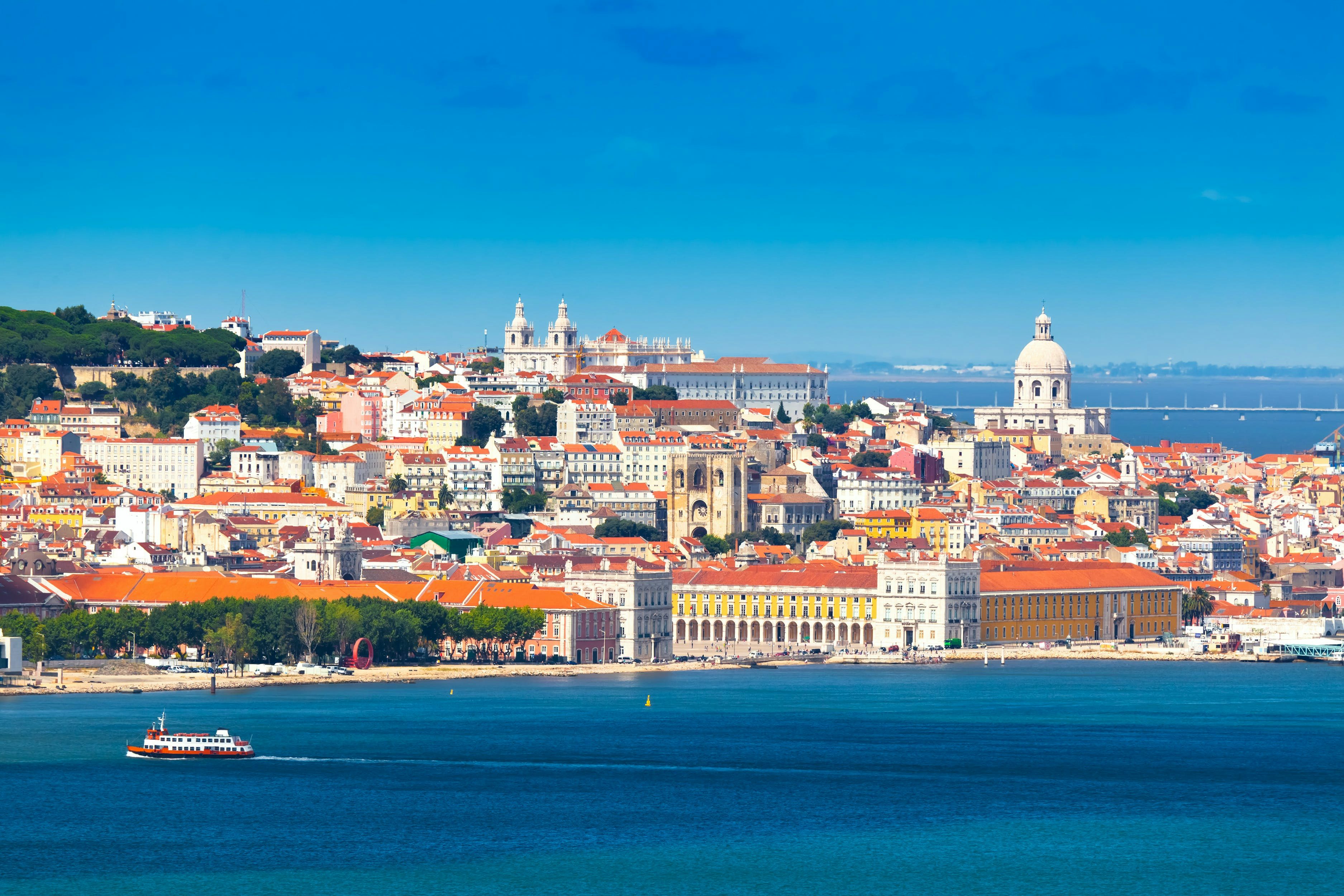

Marta Costa
Head of Relocation & Immigration
Aug 27, 2025
Portugal’s Immigration & Citizenship Laws: What Changed, What Didn’t, and What Comes Next
Portugal is in the middle of one of the biggest overhauls of its immigration and nationality framework in recent years. After years of growing migration, political debate, and administrative bottlenecks, the Government suggested restrictive reforms in June 2025 to tighten who can enter, stay, and become Portuguese.
But on August 8, 2025, the Constitutional Court struck down much of the “anti-immigration package”, ruling several measures unconstitutional. That decision leaves immigrants, expats, and international investors asking: what rules actually apply now? And what’s coming next with the Nationality Law vote in September?
In this article, we’ll cover:
1. What the Government proposed in June 2025 (in regards to Foreigners Law and Nationality Law changes)
2. What the Constitutional Court decided on August 8
3. What it means right now for visas, residency, family reunification, and nationality
4. What to expect next in Portugal’s immigration landscape
1. Background: Why Portugal Moved to Tighten Immigration
Over the last decade, Portugal has become a top destination for migrants, expats, and investors. From Brazilians seeking better opportunities, Europeans relocating for lifestyle, to North American remote workers and investors applying through the Golden Visa, the numbers surged.
The Government argued that this “uncontrolled immigration” strained public services, slowed integration, and created risks at the borders. The June 2025 package was presented as a way to:
- Have a better control on immigration.
- Restrict “abuse” of entry visas.
- Demand a stronger connection to Portuguese society and culture for nationality applicants.
- Create a new National Unit for Foreigners and Borders (UNEF) within PSP (Public Security Police, the official name is Polícia de Segurança Pública in Portuguese) to police entry and compliance.

2. Proposed Changes to the Foreigners Law
The Foreigners Law (Lei dos Estrangeiros) regulates how non-EU citizens can enter and live in Portugal. The June 2025 proposals introduced major restrictions in three main areas: family reunification, job-seeking visas, and appeals.
2.1 Family Reunification – Tighter Rules
What was proposed (June 2025):
- Immigrants / expats would need at least 2 years of legal residence in Portugal before requesting family reunification.
- Requests would have to be made from the country of origin (except for minors).
- Only minor children would be allowed to apply from inside Portugal.
- Applicants would have to prove adequate housing and financial means (excluding social benefits).
- Integration measures would become mandatory (Portuguese language, schooling for minors).
Why it mattered:
Until now, family reunification could be requested at any time by legal residents, even if relatives were already in Portugal with the proper residency permit. This was seen as a key pathway for integration, especially for Brazilian, African, North American and Asian families.
2.2 Job-Seeking Visas – Restricted to Highly Qualified Workers
What was proposed (June 2025):
- The existing visa for job search (valid for 120 days and extendable by an additional 60) would be restricted to highly qualified professionals only.
- Regular workers would lose this pathway.
- The Government planned to create “fast-track channels” to attract talent, via universities and AIMA (Agência para a Integração, Migrações e Asilo, which, in English translates to Agency for Integration, Migration and Asylum).
Why it mattered:
The job-seeking visa has been widely used, especially by Brazilians, as a way to enter Portugal, look for formal work, and then transition to residence. Restricting it to “highly qualified” would cut off thousands of applicants.
2.3 Appeals – A Drastic Limitation
What was proposed (June 2025):
- Foreigners would lose the right to appeal AIMA’s decisions (such as residence permit denials).
- The justification: AIMA was “overloaded” and appeals slowed down processes.
Why it mattered:
Appeals are a constitutional right. Many migrants rely on them when facing bureaucratic errors, long delays, or unfair denials. Removing this right was one of the most controversial proposals as would compromise immigrants’ legal rights.
2.4 UNEF – New Border Police Unit
What was proposed (and approved):
- A new National Unit of Foreigners and Borders (UNEF) within the PSP police would take over border control, monitoring, and deportations.
- Goal: to “restore border security” after SEF (Serviço de Estrangeiros e Fronteiras, which, in English, translates to Foreigners and Borders Service) was dismantled in 2023 (and subsequent introduction of AIMA).
This measure was approved and remains in effect.

3. Proposed Changes to the Nationality Law
Separate from the Foreigners Law, the Government also proposed big changes on the Nationality Law, impacting how foreigners can become Portuguese.
3.1 Residency Requirements Extended
- CPLP (Comunidade dos Países de Língua Portuguesa which, in English translates to Community of Portuguese Language Countries) citizens: Residency requirement would rise from 5 to 7 years.
- Other nationalities: From 5 to 10 years.
- Time counted from the issuance of residence permits, not from arrival or application date.
3.2 Children of Immigrants
- Parents would need at least 3 years of legal residency for their Portuguese-born child to be granted nationality.
- Parents must actively express the will for the child to become Portuguese, i.e. the Portuguese citizenship would not be automatically granted to the new-born.
3.3 Cultural & Civic Tests
- Applicants would need to prove knowledge of:
- Portuguese language and culture
- Rights and duties of citizens
- Political system (via civic test)
- Applicants must make a solemn declaration of adherence to democratic principles.
3.4 Restrictions & Revocations
- End of the Sephardic Jewish nationality route (in place since 2015).
- Nationality by descent limited to great-grandchildren (bisnetos).
- People convicted of serious crimes could lose nationality if naturalized less than 10 years ago.
4. The August 8, 2025 Constitutional Court Decision
On Friday, August 8, 2025, the Constitutional Court (Tribunal Constitucional) declared several of the Foreigners Law reforms unconstitutional.
Key outcomes:
1. Family Reunification: Remains under the current law. Any resident can apply for reunification of spouses, children, and parents, regardless of years of stay, even if relatives are already in Portugal.
2. Job-Seeking Visas: Remain open to all applicants (not only highly qualified). Conditions stay:
- Proof of sufficient funds (€2,610), confirmed accommodation in Portugal, and a return ticket are required.
- Visa is valid for 120 days, with the possibility of a 60-day extension.
- Applications must be submitted at the Portuguese consulate in the applicant’s country of residence.
3. Right to Appeal: Fully protected. Foreigners can still challenge AIMA decisions in court.
4. UNEF Border Unit: Not challenged, remains in force.
Why the Court struck it down:
1. The Government rushed the law through Parliament in just 16 working days without mandatory consultations.
2. Several measures violated constitutional rights, especially family unity and judicial recourse.
Political Reaction:
- The President returned the decree to Parliament.
- The Government pledged to “try again”, but will now need to follow the full legislative process and respect constitutional limits.

5. What This Means Right Now
As of August 2025:
Current Foreigners Law rules remain. None of the restrictive changes from June apply.
- Family reunification: Still legally possible at any time, but AIMA is limiting it in practice to minors. Adults may need to go through court.
- Job-seeking visas: Open to all, under the same requirements.
- Right to appeal: Fully intact.
- UNEF: Active and enforcing border control.
Nationality Law changes are still pending. Parliament is scheduled to debate them in September 2025. If approved, they would significantly lengthen residency requirements and tighten naturalization.
However, experts are already warning that several of the measures under discussion, such as extending residency years, limiting nationality by descent, or revoking nationality in certain cases, may also raise constitutional concerns, similar to what happened with the Foreigners Law.
6. What to Expect Next
The Government is determined to pursue tighter immigration rules, but now faces three constraints:
1. Constitutional limits – measures cannot restrict fundamental rights like family unity and judicial recourse.
2. Full parliamentary process – including consultation with advisory bodies.
3. Political alliances – as the Government does not hold a majority, it must secure support from other parties.
Possible scenarios:
- A revised Foreigners Law may reintroduce some restrictions, but in a more constitutionally sound way.
- The Nationality Law debate in September will be crucial. If passed, it would reshape the path to citizenship for future applicants.
- For now, status quo remains: the 2017 framework for family reunification, visas, and nationality stays in force.
7. Practical Advice for Foreign Citizens
If you are considering or already planning a move to Portugal:
1. Family Reunification:
- If possible, apply for your own visa together with your family at the consulate in your home country. This avoids delays and the uncertain 2-year wait that may return in future laws.
- If applying later, be aware AIMA currently processes mainly minors; adults may need legal recourse.
2. Job-Seeking Visa:
- Still available for all applicants. Ensure you have the required financial funds, housing proof, and a return ticket before applying.
3. Residency Pathway:
- Keep in mind the possible September changes to nationality law (essentially, with longer residency requirements). If eligible now, consider applying as soon as possible.
4. Stay updated with moviinn®:
- Laws are in flux. Following official updates and expert guidance is essential.
- 🌐 moviinn.com - subscribe to our newsletter at the footer of the website
- Instagram: @moviinn
- Facebook: moviinn
- LinkedIn: moviinn
- YouTube: @moviinn
Conclusion
Portugal’s immigration system is at a crossroads. The Constitutional Court’s decision on August 8 was a clear reminder that fundamental rights cannot be bypassed. For immigrants, the good news is that the status quo remains - family reunification, job-seeking visas, and appeals are still possible under current law.
But the debate is far from over. The Nationality Law reform in September could still reshape who can become Portuguese and how. For now, planning ahead, staying informed, and seeking expert advice are the best strategies.
At moviinn®, we are closely monitoring every development to guide families, professionals, and investors through these complex changes.
📩 Contact us to book a complimentary consultation and secure your future in Portugal.

Why Renewing Your Residency Permit in Portugal Is Worth the Wait, and How moviinn® Can Help
Posted by Marta Costa

Exploring Portugal's Golden Visa Through Cultural Investment
Posted by James Muscat

A New Chapter: Why Portugal is a Safe Haven for the LGBTQIA+ Community
Posted by James Muscat

Investing in Portugal for Citizenship: Is It the Right Choice for You?
Posted by Nikhil Divecha

Embracing Change: A Comprehensive Guide to Portugal's 2024 Immigration Reforms
Posted by Caroline Pagel

How Do the 2024 Amendments Change Your Path to Portuguese Citizenship? Key Insights Explained
Posted by Vitoria Valente